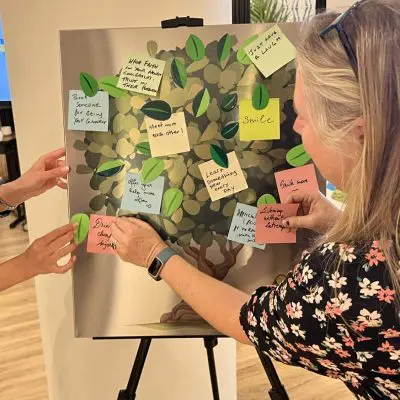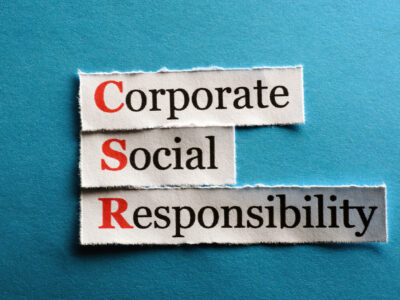You can have the sleekest office setups, the flashiest software, and a breakroom stocked with artisan coffee, but if your workplace crew doesn’t like working together, your business is a ticking time bomb.
Interpersonal relationships at work are more than office happy hours and 20-minute trust falls in the boardroom. They’re about the everyday, invisible threads that connect coworkers; the small jokes, respect for each other’s ideas, and the willingness to speak up or help without being asked.
If you’ve ever wondered why some teams feel electric while others feel like a hostage situation, look no further than the strength of their interpersonal skills in the workplace. A team that gets along will think smarter, create better, and stick around longer.
Keep reading to explore why building interpersonal skills in the workplace is your organization’s competitive edge, and how to nurture them like a boss.
What are Interpersonal Relationships in the Workplace?
Interpersonal relationships are connections we form with others. Friendships, partnerships, rivalries, mentor-mentee bonds—it’s all interpersonal. In the office ecosystem, interpersonal relationships in the workplace include everything from formal project collaborations to the casual, two-minute chats about weekend plans. Interaction stitches trust into the seams of your business team.
Good interpersonal relationship skills at work don’t just happen because you share the same Wi-Fi password. They’re built on empathy, communication, emotional intelligence, and vulnerability. When coworkers trust that they can show up as authentic individuals (not just job titles), collaboration gets easier, creativity gets bolder, and conflict becomes less nuclear.
Meanwhile, when interpersonal communication skills in the workplace are missing, you can practically hear the passive-aggression humming through the air vents.

How Do Interpersonal Relationships Affect Group Dynamics?
Picture two teams.
One operates like a jazz band—riffing, collaborating, and lifting each other in solos. The other feels like rush-hour traffic—honking, cutting each other off, and praying no one makes eye contact.
Interpersonal relationships at work are the difference. Healthy interpersonal relations at work make group dynamics smoother, more resilient, and fun. Without them, every brainstorming session feels like going to war, every group project drags, and office politics become cruel gossip and toxicity.
Strong interpersonal working relationships help groups:
- Speak without fear.
- Disagree without drama.
- Step up without stepping on toes.
- Celebrate without side-eyes.
Investing in better interpersonal team building in the workplace boosts morale while engineering an environment where momentum builds instead of stalls.
Five Ways to Strengthen Interpersonal Skills in the Workplace
Looking to enhance interpersonal skills in the workplace and elevate your team’s collaboration? Strong interpersonal relationships at work can lead to more effective communication, higher morale, and improved productivity.
Below are five strategies to help your team thrive through stronger interpersonal working relationships.
1. Encourage Empathy and Open Communication
Authentic interpersonal relationships in the workplace begin with empathy and trust. A straightforward way to build trust is by creating space for honest conversations. Regular one-on-one check-ins help foster personal connections beyond task-based chats. A quick “How can I support you today?” message signals care and creates a stronger bond.
In our Season 3 episode “The Rise of Empathetic Leadership”, podcast guest Christie Turley emphasized:
“Being anchored in your own power and who you are and being connected with yourself actually helps you to connect better with others and how they might be feeling.”
Empathy plays a central role in developing interpersonal communication skills in the workplace, and leaders who model it help normalize emotional intelligence as a core team value.
2. Acknowledge & Build Your Team’s Strengths
Employees want to feel seen, not just for their work, but for their unique capabilities. When facing a challenge, tap into someone’s expertise and ask for their input. This not only shows appreciation but also enhances team performance.
Offering professional development is another great way to strengthen interpersonal relationship skills at work. Hosting workshops or training sessions on communication, collaboration, and leadership helps team members grow. It also strengthens overall interpersonal relations at work by encouraging a shared learning environment.
3. Foster a positive workplace culture
Toxic environments erode interpersonal relationships faster than any difficult deadline. When employees don’t feel heard or valued, it’s almost impossible to maintain healthy interpersonal relationships at work.
Encourage a culture where people feel psychologically safe. Support work-life balance, invite feedback, promote diversity and inclusion, and foster cross-functional collaboration.
TEDx speaker Scott Asai highlighted the importance of this in our podcast episode on leadership and soft skills:
“Someone who’s your employee could become your competitor’s employee really quickly because they’ve created an environment that people are more attracted to.”
When employees are engaged in a supportive atmosphere, interpersonal skills in the workplace naturally flourish.
4. Schedule Team Building Activities
Team building isn’t just about having fun; it’s about strengthening the interpersonal working relationships that support collaboration under pressure. Whether in-person or remote, creating time for your team to interact outside their usual roles helps deepen trust and improve overall team dynamics.
Take advice from Dr. Froswa Booker, a passionate leader in business networking and team building connections. She sat down to discuss why social relationships matter at work:
“Play allows for the opportunity to build those relationships and to build trust. We know it takes a long time to build trust and seconds to destroy it.
So one of the ways that you can build it is actually creating these spaces for people to connect and learn more about each other and have fun.”
From escape rooms to virtual trivia, team outings to charity drives, shared experiences lay the foundation for healthy interpersonal relationships, making day-to-day collaboration smoother and more enjoyable.
5. Lead by Example
Leadership has a profound impact on interpersonal relationship skills at work. Teams often mirror the emotional tone and communication style set by their leaders. Demonstrate transparency, empathy, and approachability. Let your team know it’s okay to be human.
Kit Pang of BostonSpeaks captured this beautifully in our episode on public speaking anxiety:
“So what I’m saying as a manager, how can you share examples of yourself? Maybe the last time you had perfectionism, the last time you felt imposter syndrome, the last time you got nervous speaking—your sharing will help your team share more too.”
When leaders are open, it signals to others that it’s safe to connect, essential to forming strong interpersonal relations at work.
Team Building Activities to Better Interpersonal Relationships at Work
Building interpersonal skills at work can be fun. Good team building activities aren’t just cheesy icebreakers and forced small talk; they’re opportunities to connect outside the confines of deadlines, meetings, and email chains. When you drop the work roles and show up as people, trust forms faster, laughs get louder, and defenses drop.
Done right, team building turns acquaintances into allies. Whether a creative challenge, an outdoor adventure, or hilarious conference room trivia wars, these experiences create fresh, positive channels of communication that spread naturally back into the office.
Great teams are built through intentional moments where barriers break, connections spark, and something more profound than a job title bonds group dynamics.
You can’t just wish for strong interpersonal working relationships. You must build them, brick by brick, laugh by laugh, awkward icebreaker by (better) icebreaker. Team building activities aren’t meant to force fake friendships; they’re meant to give people a genuine chance to connect beyond the daily grind.
When teams leave the regular work routine, magic happens with more and better creativity, collaboration, and encouragement.
Here are a few fun team building activities from our TeamBonding collection:
Team Songwriting Experience
The team building songwriting experience is a high-energy songwriting challenge where teams partner with expert musicians to craft (and perform) a custom song. It strengthens collaboration, boosts creativity, and teaches team members to work together under pressure. No music experience is required!
Day at the Museum: Scavenger Hunt
This interactive scavenger hunt has teams solving clues and tackling brainteasers at a local museum, zoo, aquarium, or gallery (of your choice). It combines workplace culture with problem-solving and teamwork for a playful, fast-paced team building adventure.
City Build
TeamBonding’s City Build challenges teams to design and construct a miniature urban landscape while strengthening collaboration, communication, and project management skills. Teams plan and build interconnected districts, culminating in a big reveal celebrating a shared strategic vision.
Board Game Speed Networking
This interactive speed networking activity mixes business connections with game night fun, featuring three fast-paced rounds of strategic challenges. Teams rotate, bond, and compete in board game-like competitions, sparking authentic conversations, laughter, and a two-hour-long networking opportunity.
The beauty of team building is that it shortcuts months of stiff hallway nods, weird small talk by the water cooler, and tentative emails. Team building activities invite coworkers to see each other’s strengths, personalities, and vulnerabilities while building empathy. These elements forge authentic interpersonal relationships at work.
Why Interpersonal Relationships in the Workplace Impact Performance
Still think interpersonal relationships in the workplace are a “nice to have” instead of a “must have?” Let’s do the math.
Imagine two equally talented teams. One is thick with grudges, miscommunications, and passive-aggressive feuds over the most minor stuff. The other is filled with people who genuinely trust and like each other.
Which one finishes the project faster? Who handles client crises better? Which team can bounce back harder after failures?
Hint: It’s not the Grudge Match Gang.
Strong interpersonal communication skills in the workplace amplify everything good, like collaboration, creativity, and productivity, while choking off the bad, like resentment, gossip, and inefficiency. It’s not about forcing “kumbaya” moments; it’s about creating a baseline of trust, openness, and humanity that makes excellent work possible.
Building better interpersonal relations at work is an investment in the company’s performance engine. Every conversation, act of listening, and olive branch after conflict strengthens the business machine (or weakens it if neglected). The future of work is more than AI, hybrid offices, and fancy perks. It’s remembering that work is human; the better we are at being humans together, the better our businesses will be.
Ready to supercharge your team’s interpersonal skills? Contact TeamBonding and make office chemistry your secret weapon.

















